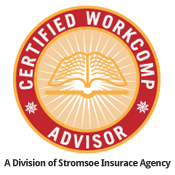How the Pandemic Has Changed Workers Comp
The COVID-19 pandemic has changed the way people now work. Safety and Social distancing guidelines have required employers to enable employees to work remotely from their homes when possible. Even after a vaccine is commonplace and we get back to a “new normal,” the work from home trend will not necessarily end. Business leaders believe that most of their employees will continue working remotely at some of the time in the post-pandemic.
So, what then happens if an employee working remotely suffers an injury? Are your employees still covered under your work comp insurance? While the COVID-19 pandemic has radically altered everyday life, remote working is not a new model. Typically, if a remote worker is injured while conducting work-related activities, he or she is eligible for workers’ compensation benefits.
Protecting your business and employees is a top priority and understanding how workers’ comp coverage applies to remote team members is essential.
Let’s take a look at the basic work comp coverage requirements and provide share some tips for providing workers’ comp coverage to remote workers.
Does workers’ comp cover employees working from home?
The short answer is sometimes. This all depends on the specific nature of the injury, the state the workplace is located in, and the details of your remote working policy or in come cases called a “telecommuting agreement”.
How do you define “work-related injuries” for remote workers? In general, an employee injury or illness is compensable under workers’ comp if it “arises out of and in the course of employment,” regardless of where the injury occurs. To break it down:
- “Arising out of” relates to what the employee was doing at the time of the injury
- “In the course of” relates to when the injury happened
A compensable injury must have occurred during work hours and from an activity related to the employee’s job duties.
How does workers’ comp work for remote employees?
In most cases, the hurt employee has the burden of proving that the injury was work-related and needs adequate evidence in their favor. Since many telecommuters are home alone while they work, there may not always be someone who can corroborate the incident.
Because state laws differ when it comes to what’s considered a “work-related injury,” it’s important to define each employee’s normal working hours and specific job duties to help determine what is—and is not—a work-related claim.
Is workers’ comp required for remote employees?
If you have even one employee, it’s most likely required by state law that your carries workers’ comp insurance. This is whether the employees work remotely or not.
It is always a wise business investment to choose the correct workers compensation policy for your business. This will help keep both your business and your employees protected, especially during unexpected emergencies.
Tips for ensuring safe telecommuting practices
Since the workplace activities of remote workers cannot always be monitored, business owners may be at an additional risk of liability for these employees. To reduce the risk of injury in an employee’s home-based workspace, it’s important to take every precaution possible to ensure that remote workplaces are safe work settings.
Here are a few tips for employing safe telecommuting practices.
- Create a remote working policy that details your expectations for telecommuters. Review it with employees and ask them to sign an acknowledgment that they received and reviewed the policy.
- Set fixed work hours and meal and rest times for remote workers to better define “in the course of employment.”
- Clearly define each employee’s scope of work. The policy should state that activities falling outside the employee’s job description are not the employer’s responsibility.
- Establish standards for a home office, such as requiring a designated and dedicated work area.
- Provide training on workstation setup and safety measures, including ergonomic best practices.
- Detail the equipment used by each employee.
- Enact guidelines for check-ins (such as geo-tracking or equipment tracking) or other reporting milestones.
Still have concerns about COVID-19’s impact on remote workers’ comp?
The COVID-19 pandemic has changed how business is now conducted and this may be permanent in some ways. As a business owner, it might be a rocky road to recovery, but hopefully, you are making positive progress. Your certified work comp advisors at Correct Comp are here to help.
Your true Workers’ comp insurance lowest cost made easy
If organizing your workers’ comp insurance program seems overwhelming, you’re not alone. Your certified work comp advisors at Correct Comp are passionate about making your workers comp program easy and painless.
If you would like to discuss any aspect that affects your Workers Comp coverage and premium, here are 4 easy ways to reach us:
Phone: 877-994-6787
Text: 951-482-8144
Email: [email protected]
Web: www.correctcomp.com
Here are some kind words from a business that trusts Stromsoe Insurance Agency:
“Stromsoe is amazing at getting my clients covered for workers compensation. They also covered me for my auto insurance.”
Daneen Ashworth – CompassHR Inc – Murrieta, CA – Client Since 2017
The CorrectComp system is a division of Stromsoe Insurance Agency
